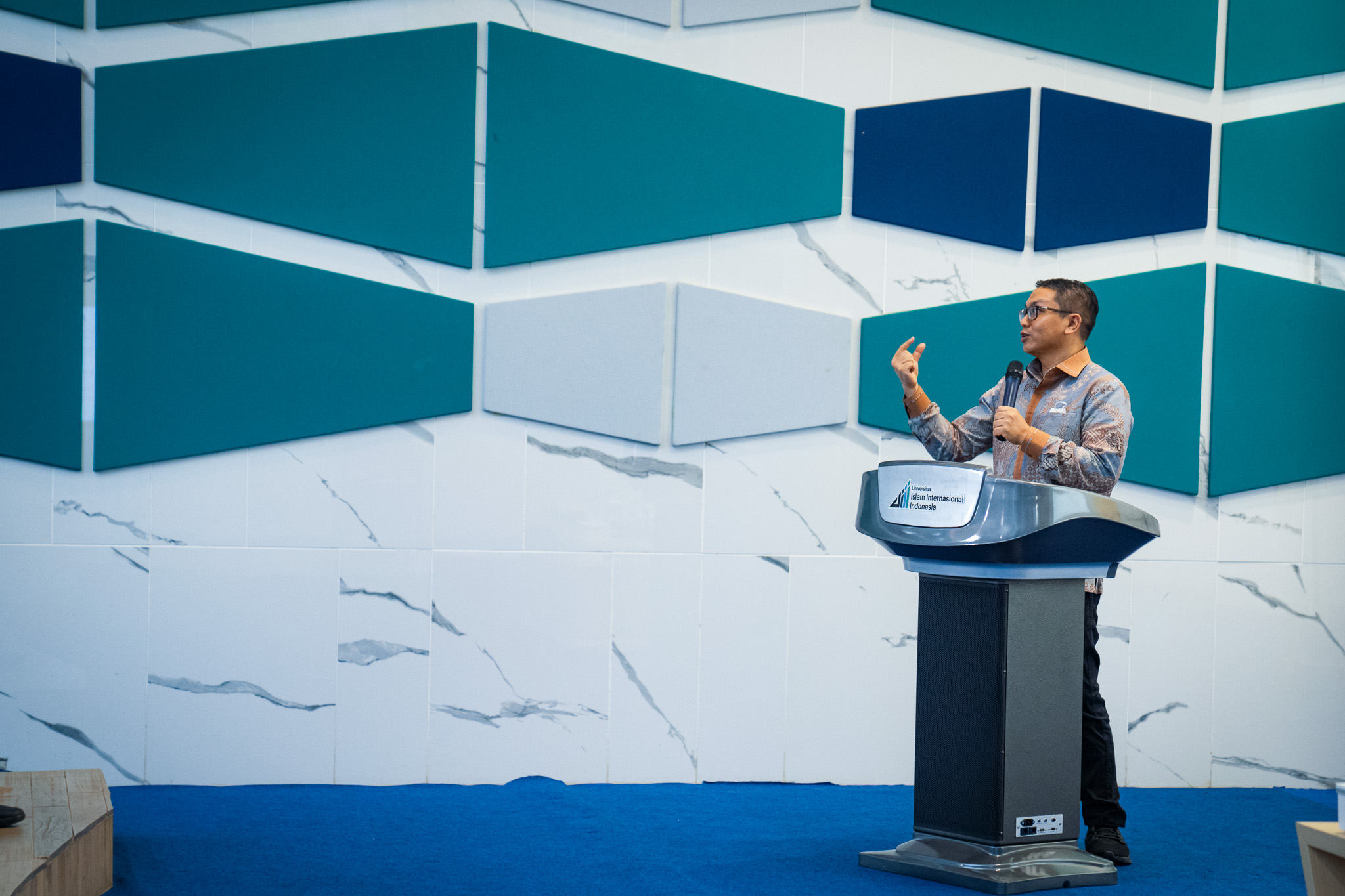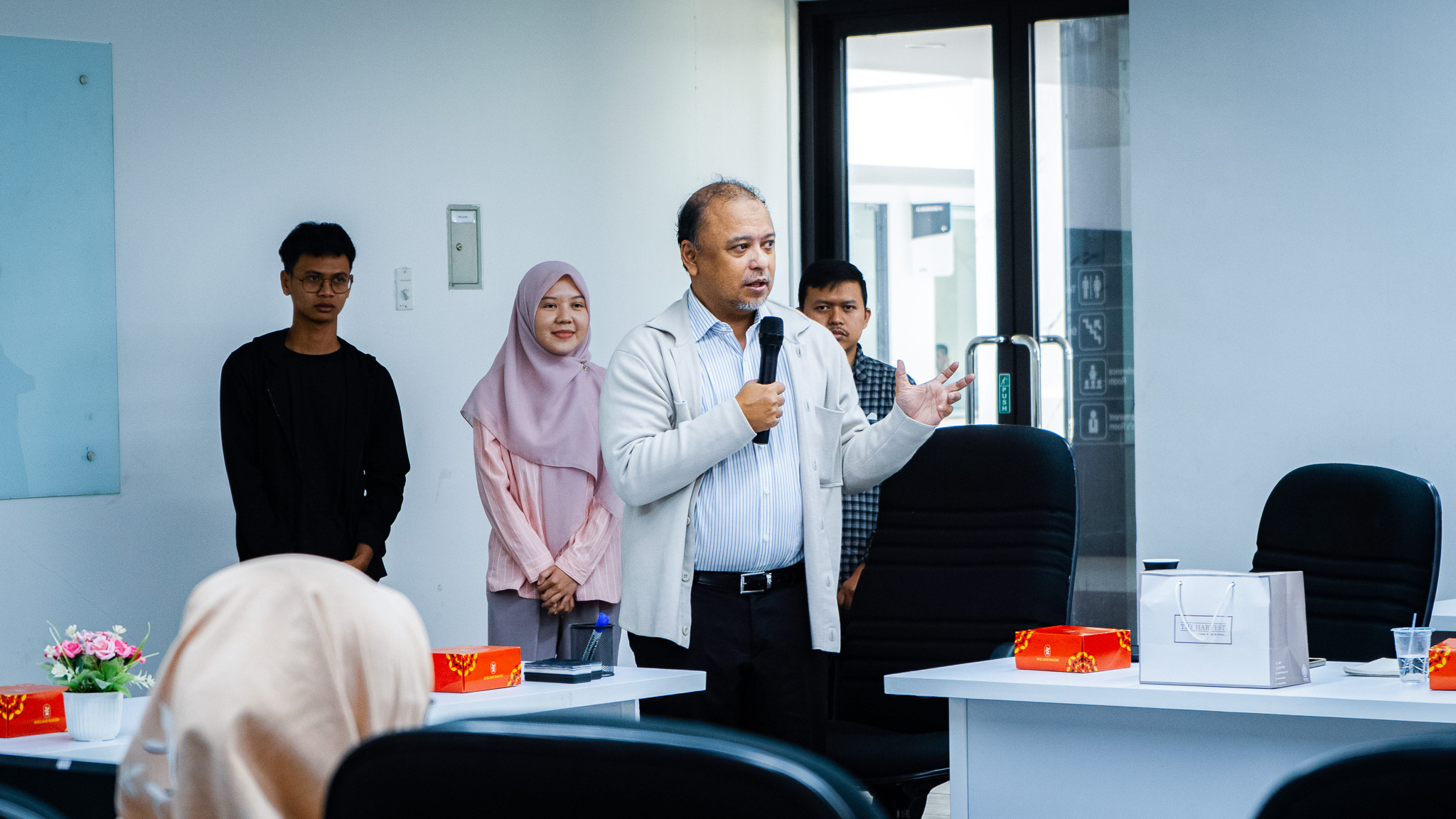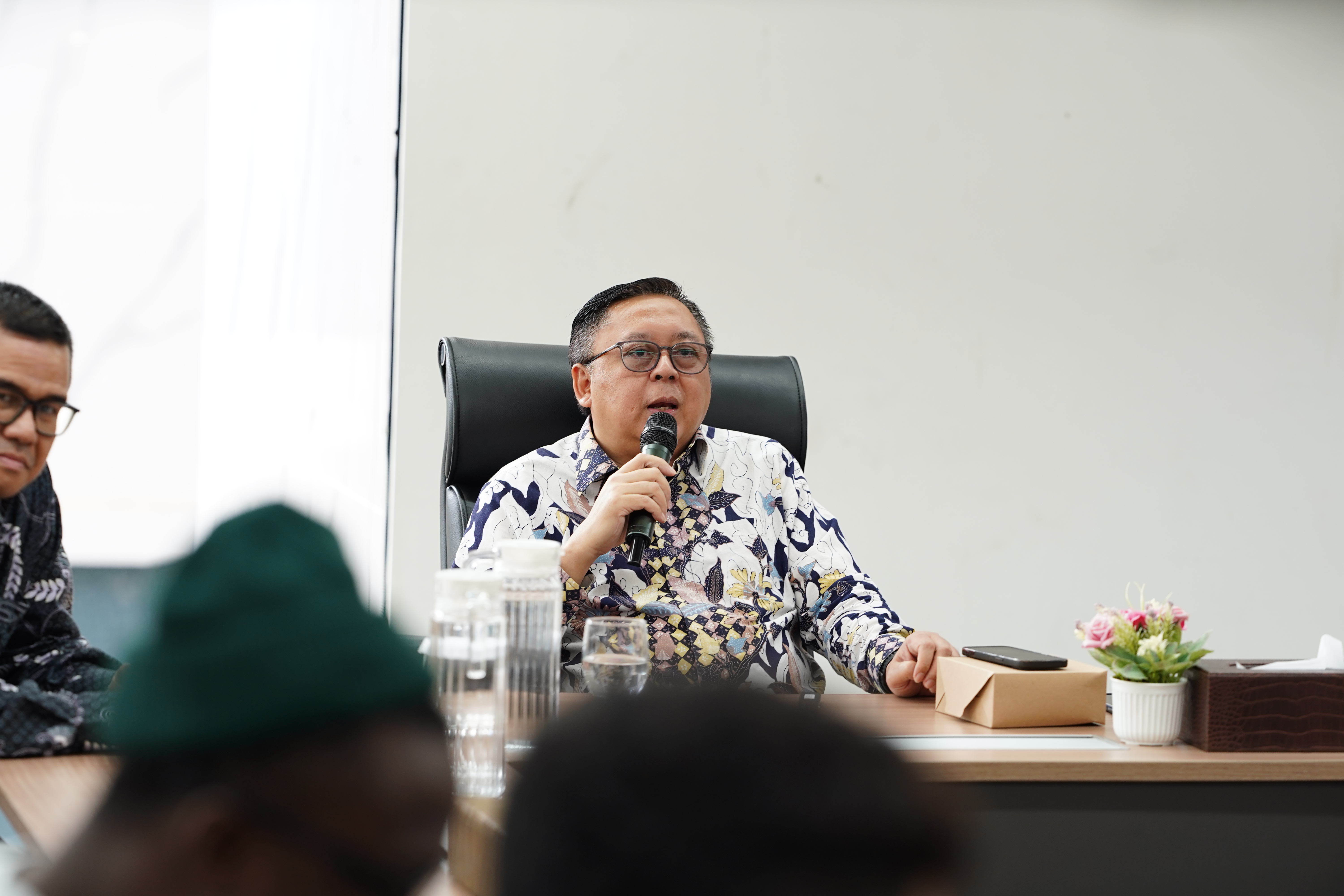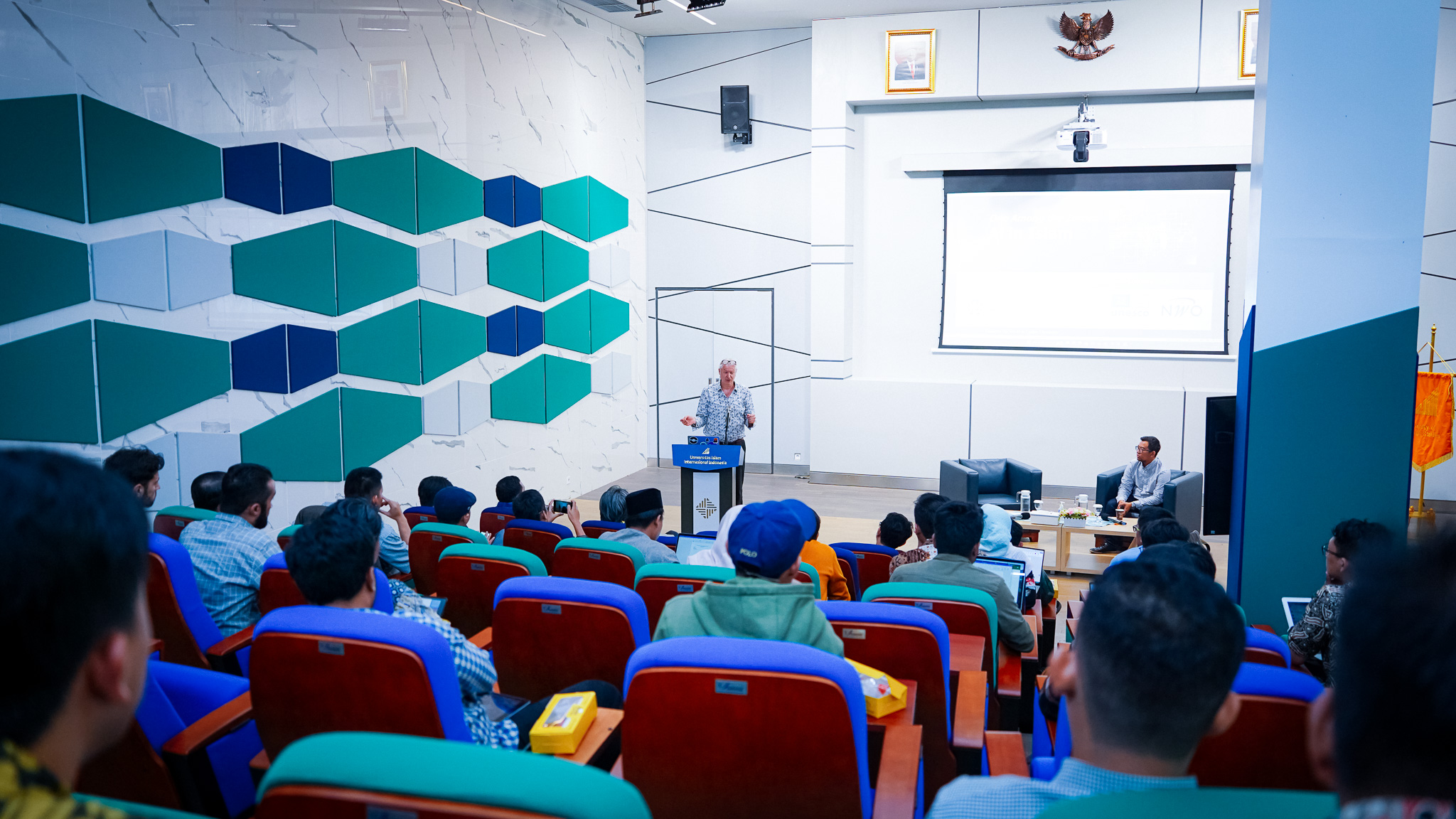Unlocking Digital Adoption for Indonesian MSEs: A Public Lecture with Prof. Irwan Trinugroho
January 06, 2024Contributor: Rashid Shabir Abbasi | Editor: Supriyono

UIII.AC.ID, DEPOK - A public lecture was held on December 18, 2023, by the Universitas Islam Internasional Indonesia (UIII) featuring Professor Irwan Trinugroho, the interim Vice Rector of Planning, Business Partnership, and Information at Universitas Sebelas Maret (UNS) Surakarta, who presented a comprehensive research study on the digital adoption trends among Micro and Small Enterprises (MSEs) in Indonesia.
In the event which was part of the Sustainable Finance lecture series, Professor Trinugroho highlighted the massive digital transformation that has characterized the past two decades, attributing it to the widespread penetration of the internet and smartphones across various sectors. He emphasized that MSEs in Indonesia have also made strides in adopting digital technologies, including e-commerce, online marketing, digital payment systems, e-procurement, and manufacturing processes.
The study aimed to comprehensively understand the extent of digital adoption by MSEs in Indonesia. To achieve this, the researchers constructed a Digital Adoption Index, measuring the level of digital transformation in five key business processes: procurement, recording and bookkeeping, payment, marketing, and sales.
"We consider several aspects, including firm-specific factors, owner demographic characteristics, business environment, ICT infrastructure quality, and culture," Professor Trinugroho explained the factors influencing digital adoption disparity.
The research collected data from 5,035 firms through a combination of in-person and online surveys. The study covered 17 major provinces, ensuring a representative sample of MSEs across Indonesia. Multistage sampling techniques were employed, balancing factors such as business sector, rural/urban location, and firm size.
Once the data collection was completed, the data was analyzed using ordinary least squares estimation methods and employing OLS regression. To address concerns of endogeneity, the study utilized two-stage least squares (2SLS), with instrumental variables including owners' age, education, and digital competition.
The Digital Adoption Index revealed an average score of 20.33 out of 100, indicating a moderate level of adoption. E-procurement emerged as the most widely adopted digital technology, while point of sales showed the lowest adoption rate. Notably, a significant digital adoption gap was observed between MSEs in Java and those outside Java.
"Our results reveal that digital adoption significantly improves the performance of MSEs, contributing to enhanced financial inclusion and literacy,” Professor Trinugroho explained the findings.
The study's policy implications suggest that while digital adoption benefits MSEs, Indonesia's current level remains relatively low. The researchers called for intensified efforts from governmental organizations, financial service providers, non-governmental organizations, academic communities, and other stakeholders to encourage, assist, and facilitate MSEs in digitally transforming their business processes.
"Improving digital literacy and fostering technology awareness and trust are crucial steps in promoting digital adoption among MSEs," Professor Trinugroho emphasized. The study also highlighted the importance of more flexible regulations on legal entities and business permits for MSEs, given their significant impact on digital adoption.
The research presented by Professor Irwan Trinugroho sheds light on the evolving landscape of digital adoption among Indonesian MSEs, offering valuable insights for policymakers and stakeholders seeking to propel these enterprises into a more technologically advanced future.
- Call for Papers 2025: FEB UIII Invites Researchers to Explore Muslim World Economy & Sustainability in OIC Countries
- Prof. Dr. Nasaruddin Umar: A Distinguished Profile in Religious Leadership
- Is Indonesia’s Middle Class Collapsing?
- Pedaling to Work, Dr. Lukman’s Message on ‘World Sustainable Transport Day’
- Welcoming the Pilgrim of Hope: Indonesian Muslim Leaders Embrace Pope Francis
- Sheikh Muhammad adh-Dhuwaini: A Recognized Authority in Sharia and Law
- Qurban and Grassroots Innovations Across Indonesia
- Indonesia's Green Qurban Movement
- UIII Productivity Ratio 2023
- Unsung Heroes in Global Trade: Celebrating International Customs Day 2024


